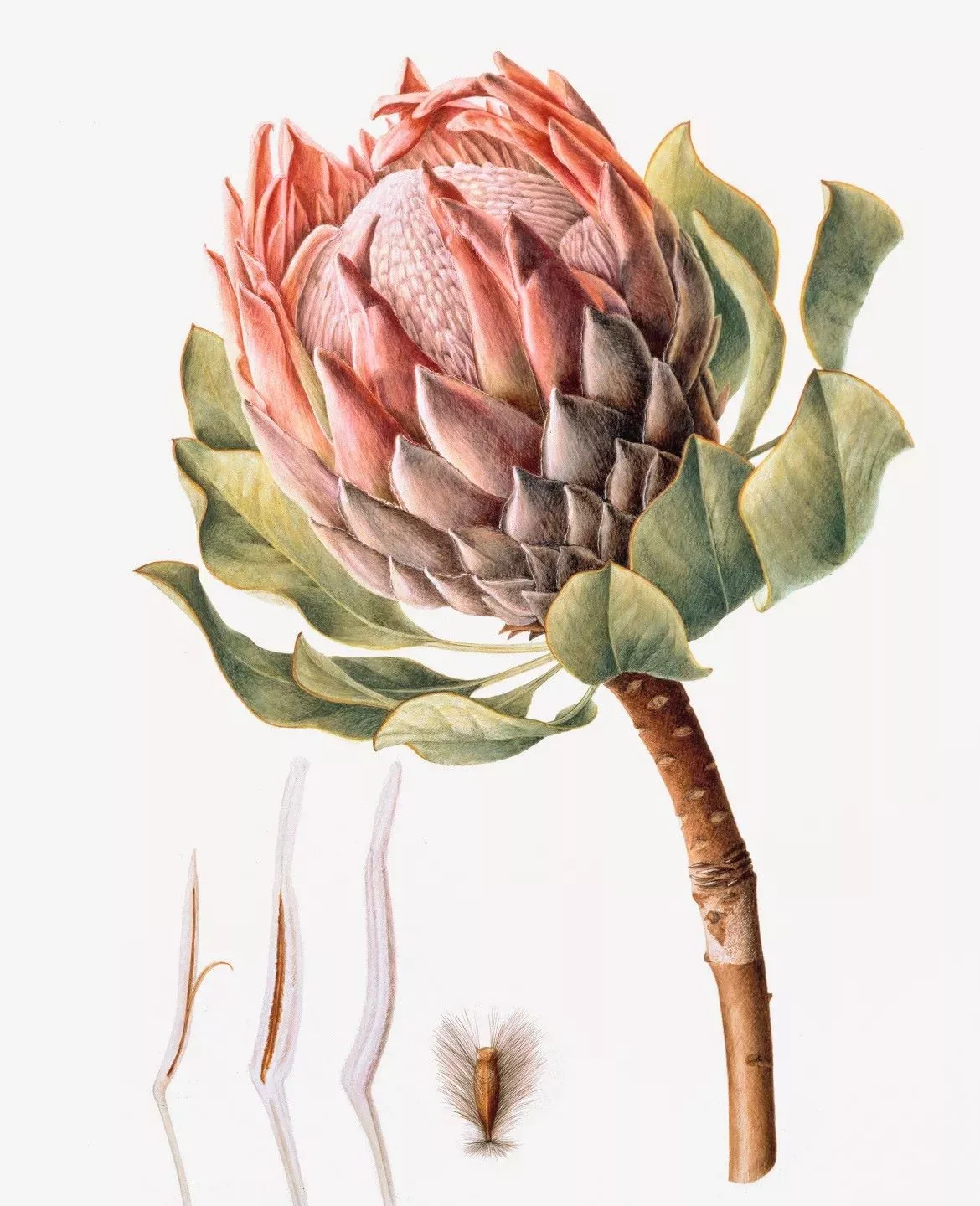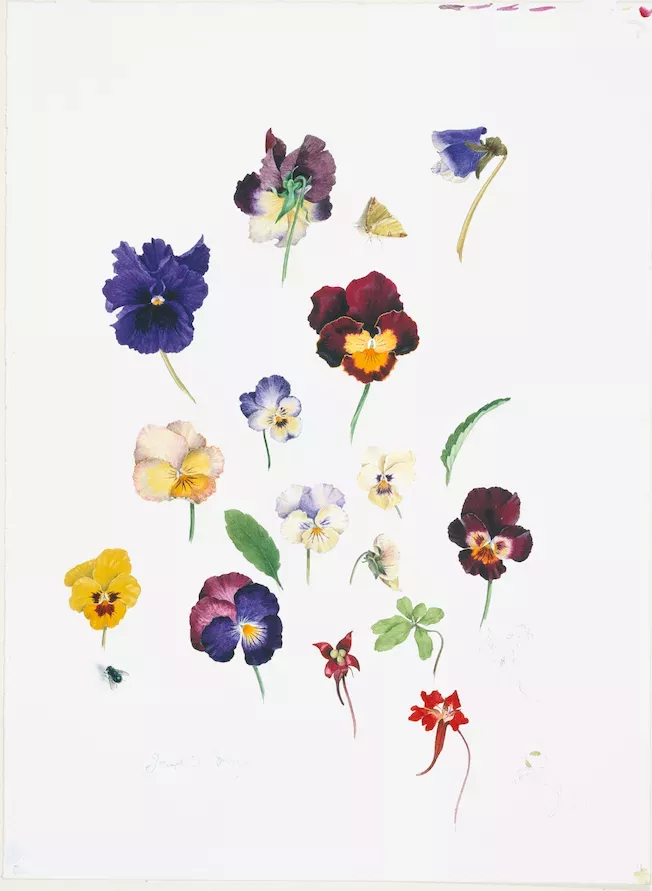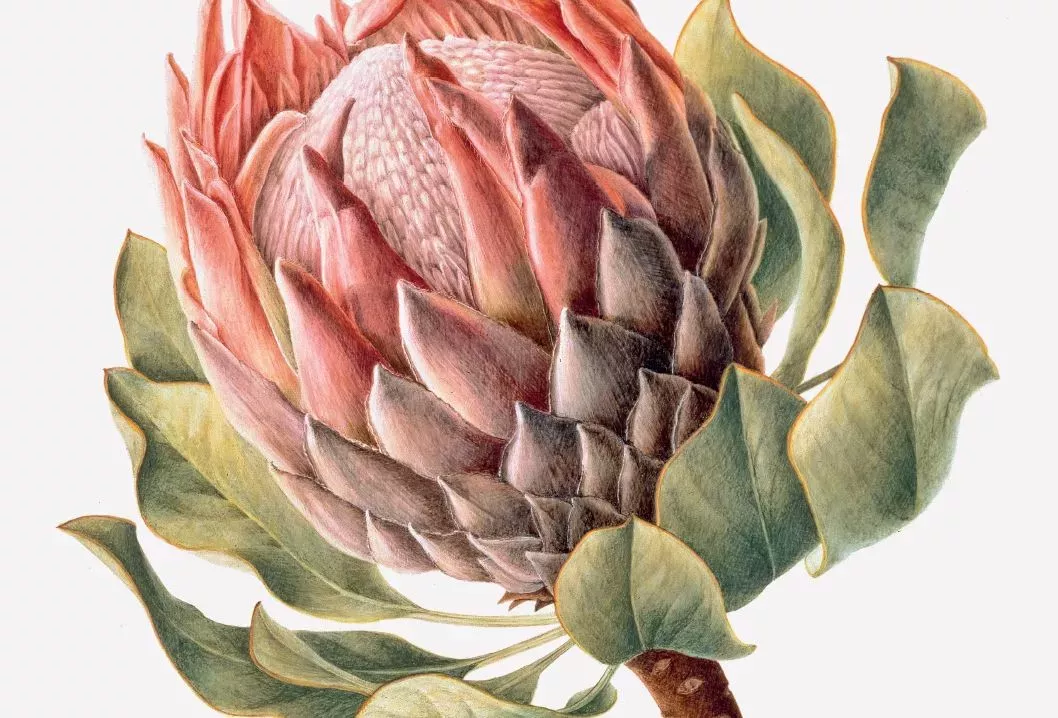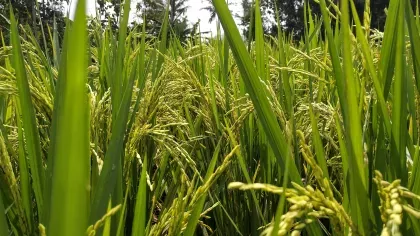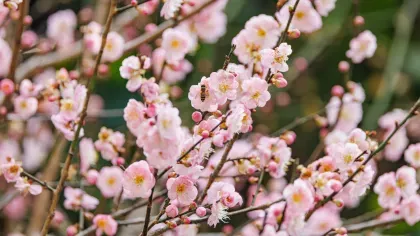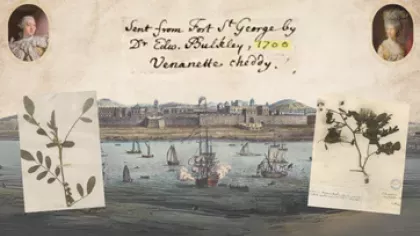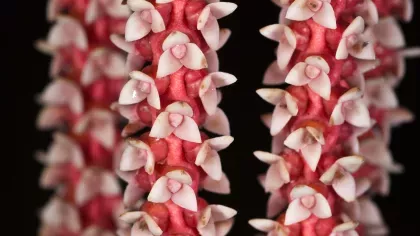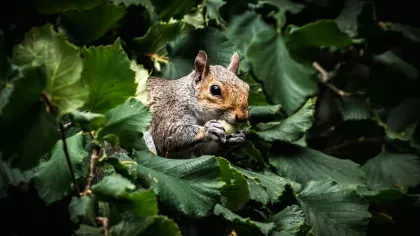2 October 2020
Delight in the detail: Botanical art highlights
A round up of the beautiful botanical art highlights in our new exhibition.

From tiny delicate petals, to large majestic blooms, flowers come in all shapes and sizes.
Beautiful and vital, they contain the seed-bearing parts of a plant and are typically surrounded by brightly-coloured petals and green sepals.
From Brazil to Japan, our new exhibition at the Shirley Sherwood Gallery of Botanical Art celebrates flowers from across the globe.
Here are our must-see highlights.
Flight of Passion by Denise Ramsay
The biggest painting in the exhibition, this stunning art work enlarges the intricate details of the Passion Flower.
A recent trend in botanical art, enlarging and magnifying plants shows off features you'd otherwise miss.
This huge watercolour painting measures over 1m in length, and uses a beautiful palette of vivid pinks and reds.
There are more than 550 species of Passion Flower and they are mostly climbers, with some shrubs and even trees.
They are commonly distributed throughout Mexico and Central and South America, and sometimes occur in Southeast Asia and the Pacific.
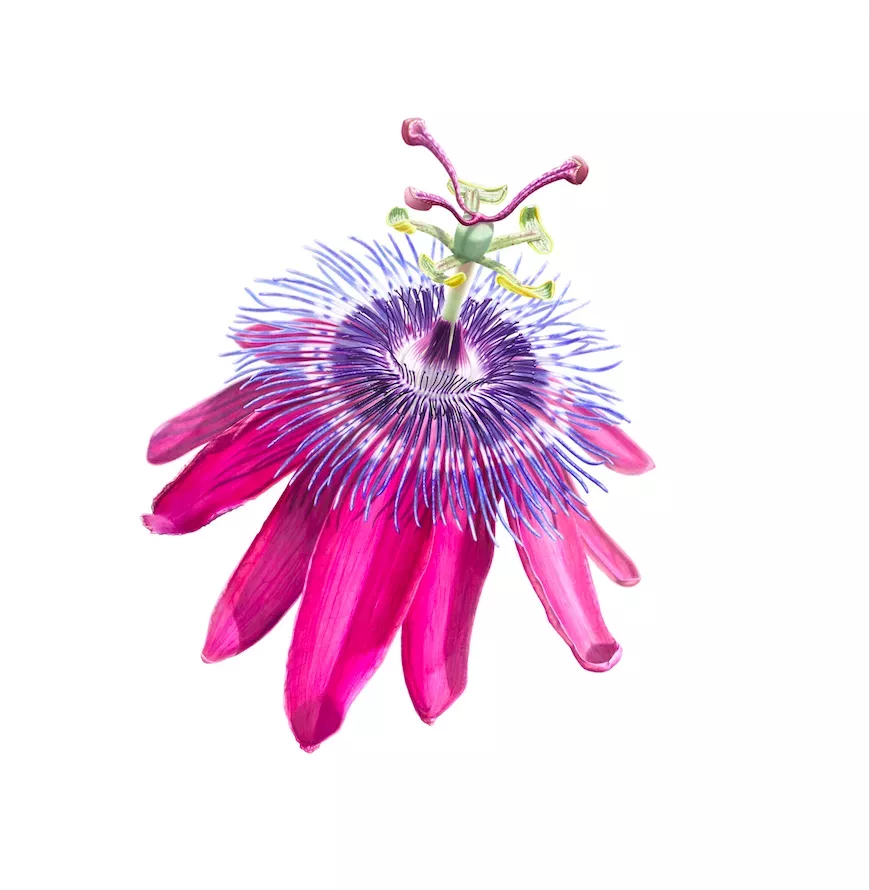
Erica patersonia by Margaret de Villiers
This large-scale painting has complex features, showing the incredible skill of botanical artists in capturing accurate detail.
Botanical artists hone in on the tiny details of plants, such as the formation of spikelets or the way a leaf is attached to a stem.
Native to the Cape Province of South Africa, it thrives in mountainous regions.
Margaret paints fynbos specimens, which are a distinctive type of vegetation, that she has collected in the mountains and coastal plains of the southern tip of Africa.
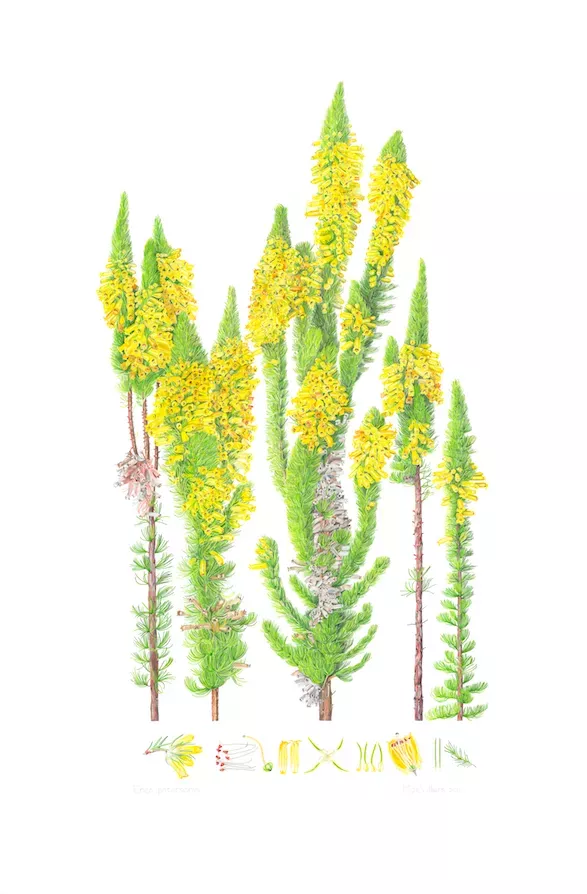
Euphorbia obesa by Jenny Phillips
This beautiful painting shows the roots and cross section of the unique plant Euphorbia obesa.
Now very rare in its native habitat, it is a striking plant that is protected by CITES legislation.
The plants' native habitat is the Great Karoo in South Africa, a semi-desert region stretching 400,000 square km.
They are adapted to hot, dry climates as the body of the plant stores water. It is known as the baseball plant because of it's ball-like shape.
Despite being rare in the wild, it is cultivated widely and is a popular house plant. But beware of the milky sap, which is poisonous to humans and pets.
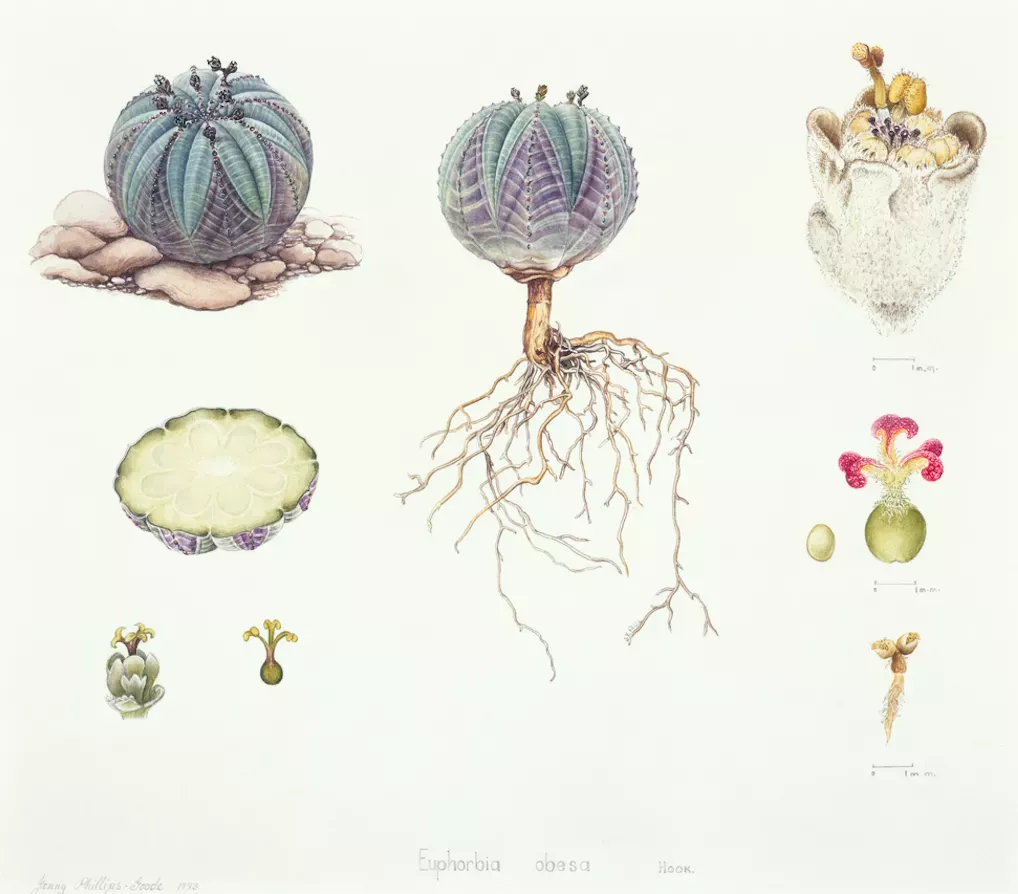
Banksia serrata by Celia Rosser
This bold plant, with large leaves and cream flowers, is native to the east coast of Australia. It's found from Queensland to Victoria, and also in Tasmania.
Also known as 'Old Man Banksia', it can grow up to 16m in the right conditions.
They have rough bark and gnarled branches, often due to exposure to strong winds or bushfires.
These amazing plants come back to life after fire. Epicormic buds are dormant in the tree bark and start producing shoots under certain conditions, such as when the tree is damaged by fire.
This plant has inspired many artists including Jan Hendrix. A motif of the plant makes up part of his mirrored pavilion at the centre of Paradise Lost, his latest exhibition at Kew's Shirley Sherwood Gallery.
More exhibition highlights
- Brigid Edwards, King Protea. Don't miss this stunning painting on vellum.
- Jenny Hyde-Johnson, Friends, foes and pre-rain forbs. Look out for hidden insects in the painting.
- Josephine Hague, Pansies & Tropaeolum speciosum. Enjoy the beautiful composition.
